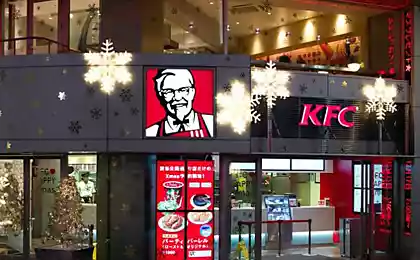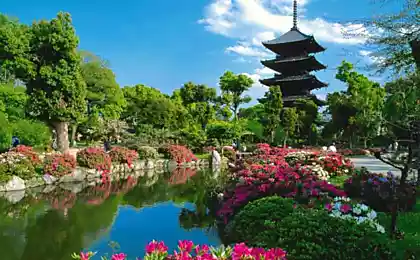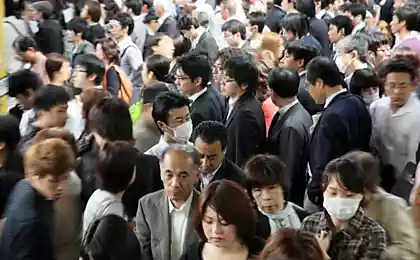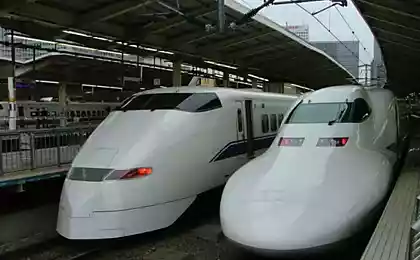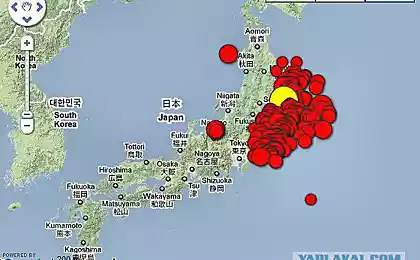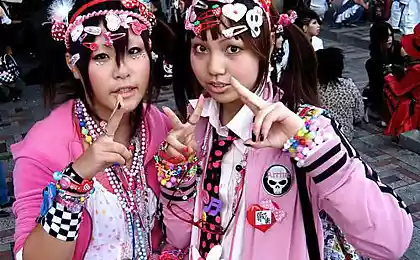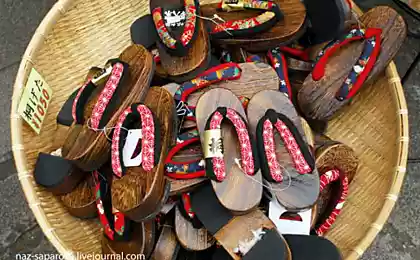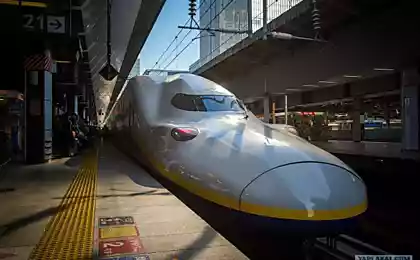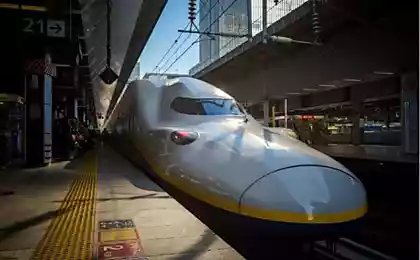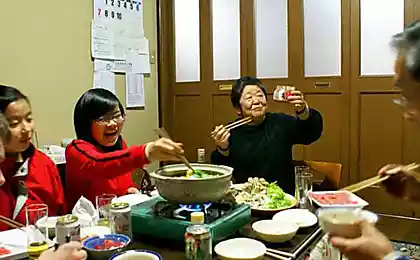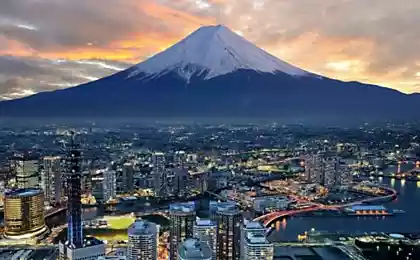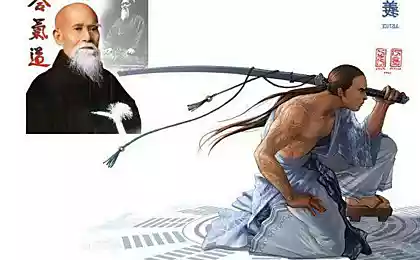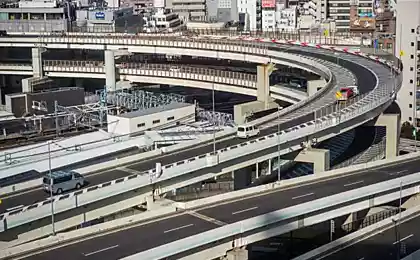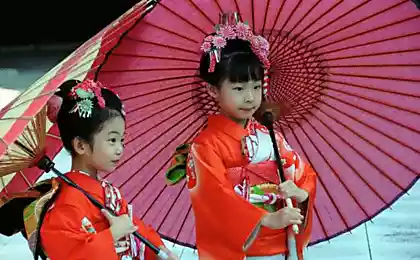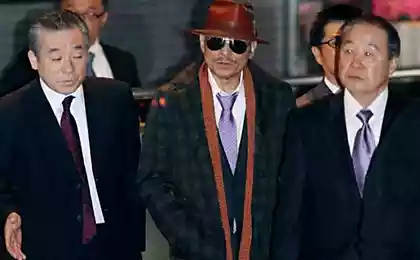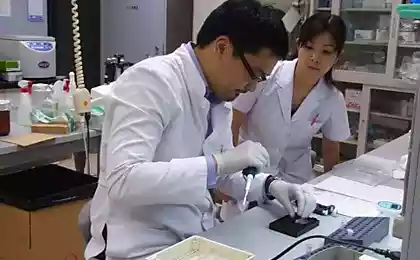886
What you did not know about Japan
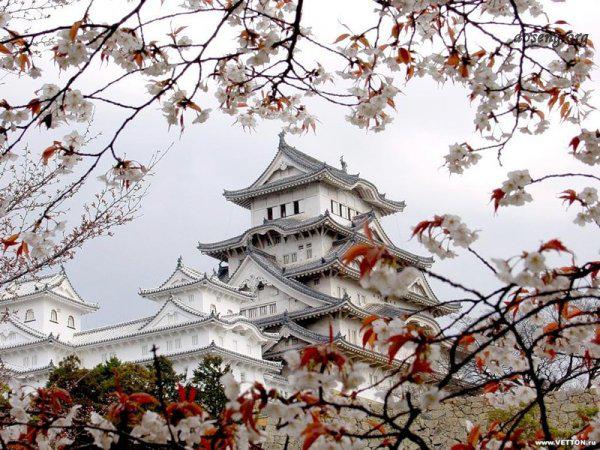
1) ... in ancient times, Japanese people were fishing using tame cormorants? At night, the fishermen lit flares in the boat, drawing, thus the fish. Then, with each boat produced a dozen cormorants, tied to long ropes. Each bird was intercepted by a flexible neck collar, it does not allow to swallow cormorants captured fish. Cormorants rapidly gaining its goiters, and the fisherman pulled the birds into the boat, where he collected the catch. Each bird received his reward, and was produced for the next round of hunting for fish.
2) ... Japanese, answering the phone, do not say "Hello" and "Mosi-Mosi"? When the phone entered the lives of the Japanese, they are answering the call, saying, "Oh, oh!" That was like our "Yes, yes!". And the one who called, spoke thus: "Hi, e godzaymasu" ("I have a thing"). Gradually, these words replaced patter "Mosimasu, mosimasu" ("Speak, speak"), which over time reduced to the current "Mosi-Mosi».
3) ... the Japanese call the green light blue? When Japan emerged first street lights, signals were red, yellow and blue. Then it turned out that the green beam is much more visible at a great distance than blue. Therefore blue lenses gradually replaced by traffic lights green. But the custom of allowing the movement to call a signal "blue" has remained.
4) ... on Japanese banknotes depict a very hairy man? The reason for this is not that in the old days the Japanese had more facial hair. One of the major challenges facing designers of money, is the desire to make them difficult to counterfeit. Therefore, the graphic image on the note should be the maximum number of different small parts - for example, lush beard, mustache, wrinkles on the forehead.
5) ... there is the Japanese expression "mountain whale"? Euphemism pit-KUJIRA (literally: mountain whale) Japanese steel upotreblint in the days when Buddhism came to the country have banned the use of meat animals. In fish, these prohibitions do not spread, so the words "mountain whale" Japanese masked by the authorities and priests forbidden to eat the meat of wild boar.
6) ... Japanese name of their money pronounced as "en" instead of "yen"? Once hieroglyph money, pronounced by the Japanese as "van". However, with time in the evolution of language all the syllables starting with "c", but "wa", were reduced. And already during the Edo period (1603-1868) the Japanese call money, just as now, - "en". But foreigners, producing because of their understanding rules of transcription of Japanese words, depictions of the Japanese sound "e" in Latin letters «ye». Accordingly, the name of the Japanese currency began to sound like "yen" or "yen».
7) ... a cup of coffee in Japan is very expensive? The cost of a cup of this drink in coffee shops more than 400 yen. And it is not explained by the fact that coffee and import levy while significant duties. This fee is charged, rather, not for a cup of coffee, and for a place in the cafe. A drink, a person can sit quietly in a comfortable room for several hours, resting from the bustle of shops, wait rain, read a book. It will not be disturbed, and the waiters will just pour it into a glass of cold water, always with a polite smile.
8) ... in Japan, drivers, stopping at intersections, turn off the lights of cars? Once a foreigner has suggested that so Japanese drivers save battery power. However, it is not. It's all about etiquette. When the car stopped at an intersection, the driver does not need lighting, and turning it off, it is not blinding oncoming. Think about why other countries do not?
9) ... vegetable shop in Japan called "800 shops of goods"? Initially, shops selling vegetables, called Aoi (green store). However, over time, began to expand assortment grocers. In the shops started selling nuts, canned goods, and other foods. And then these shops, little changed on hearing the pronunciation, became known as yaoi (Shop 800 products). For the Japanese, the number 800 is a huge amount of items. This value and the owners wanted to convey to its customers, emphasizing the infinite variety of the available goods.
And finally,
10) ... in Japan, the winner of the main tournament sumo gets very unusual prize? He was presented with the keys to a new car, a year's supply of gasoline, thousand shiitake mushrooms, beef cow weighing one and a stock of Coca-Cola for a year.
